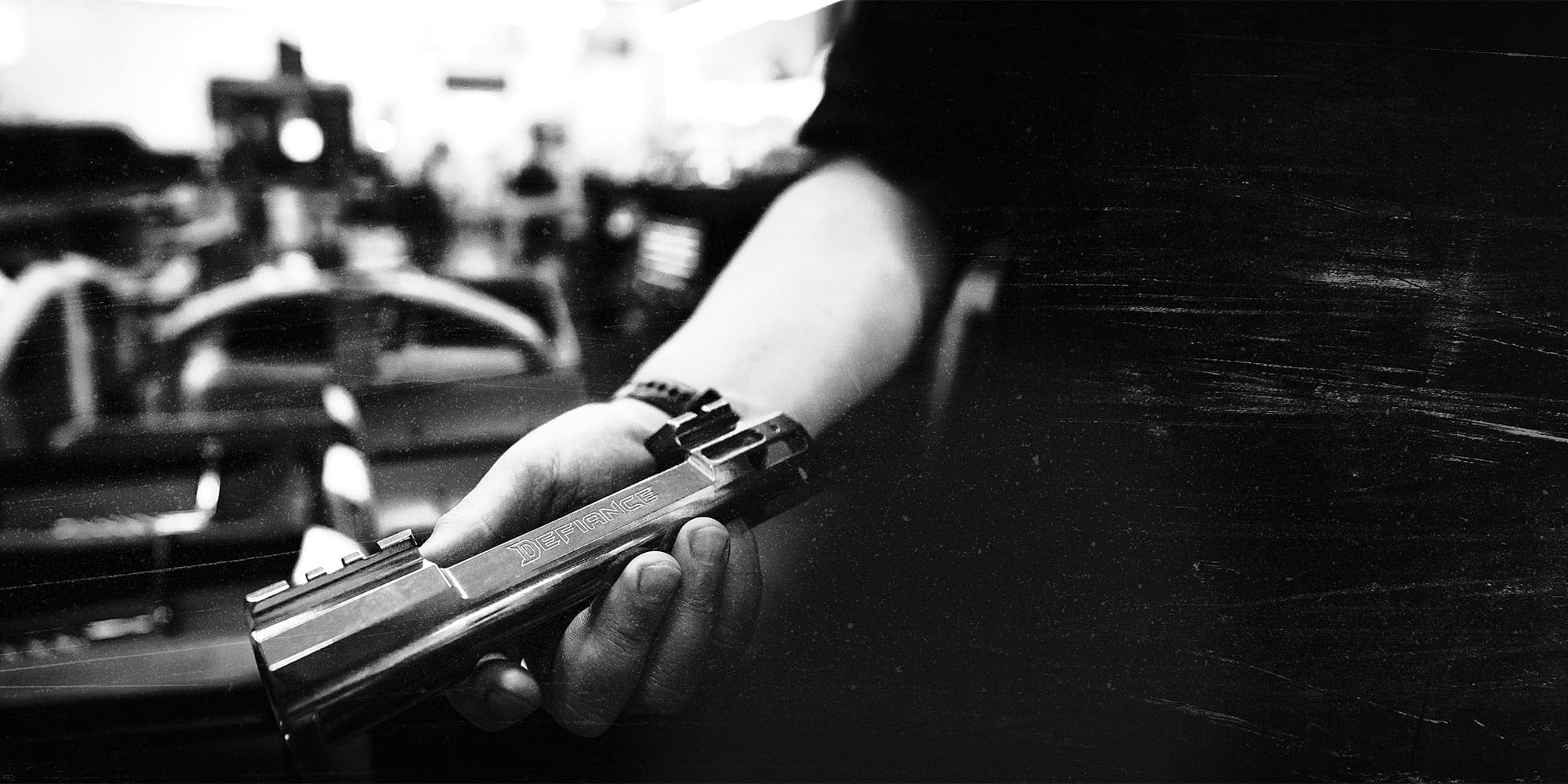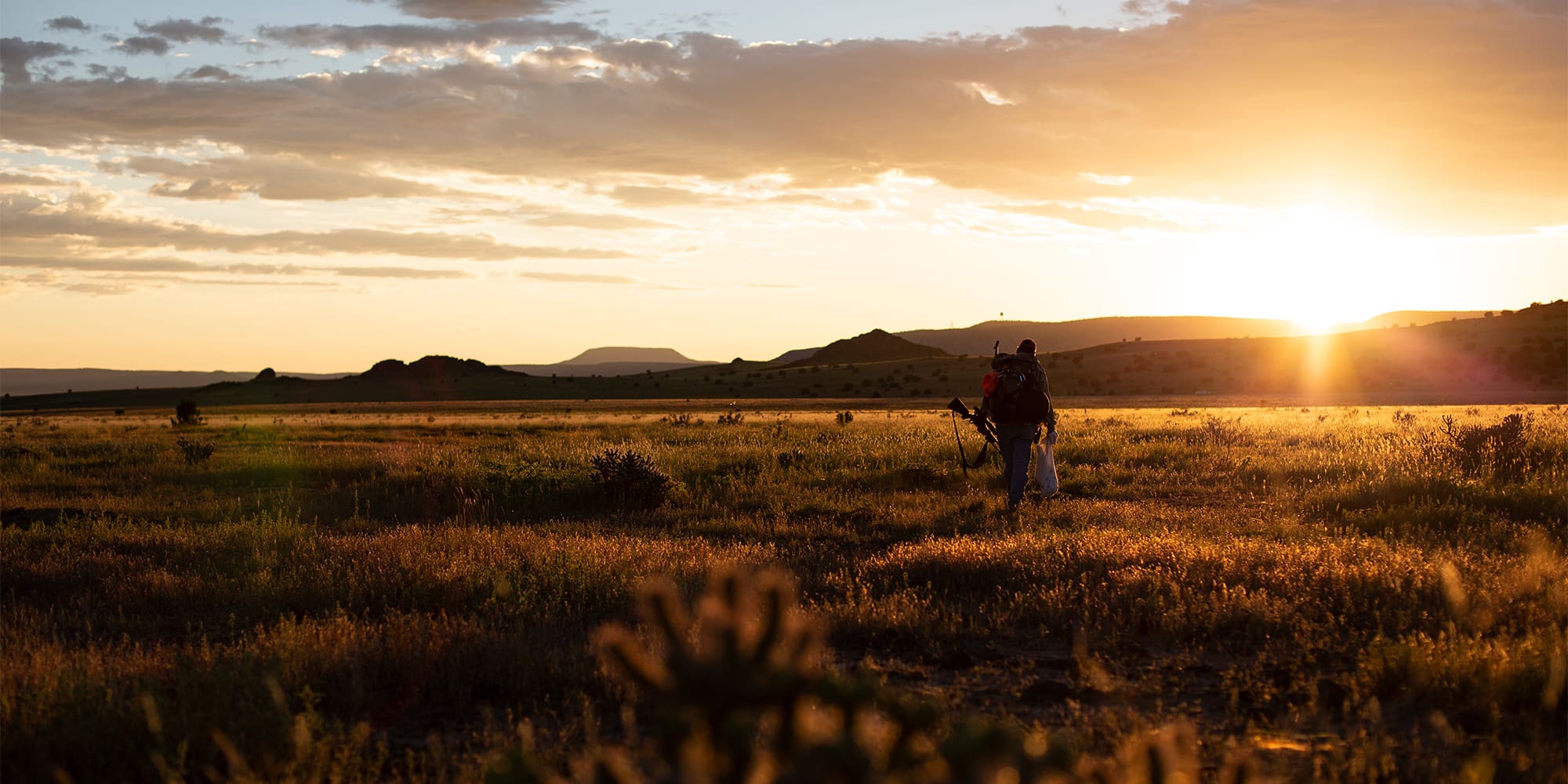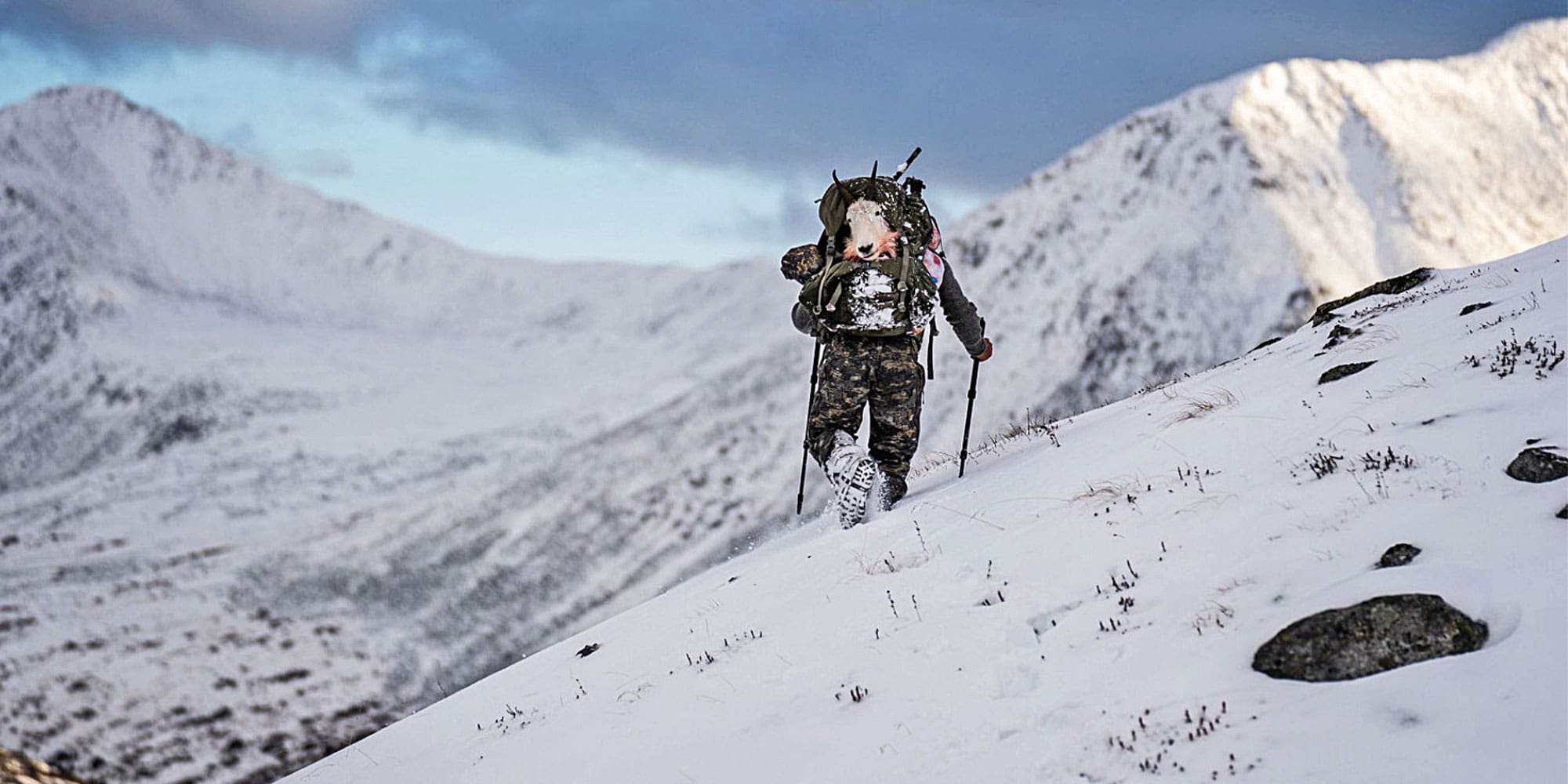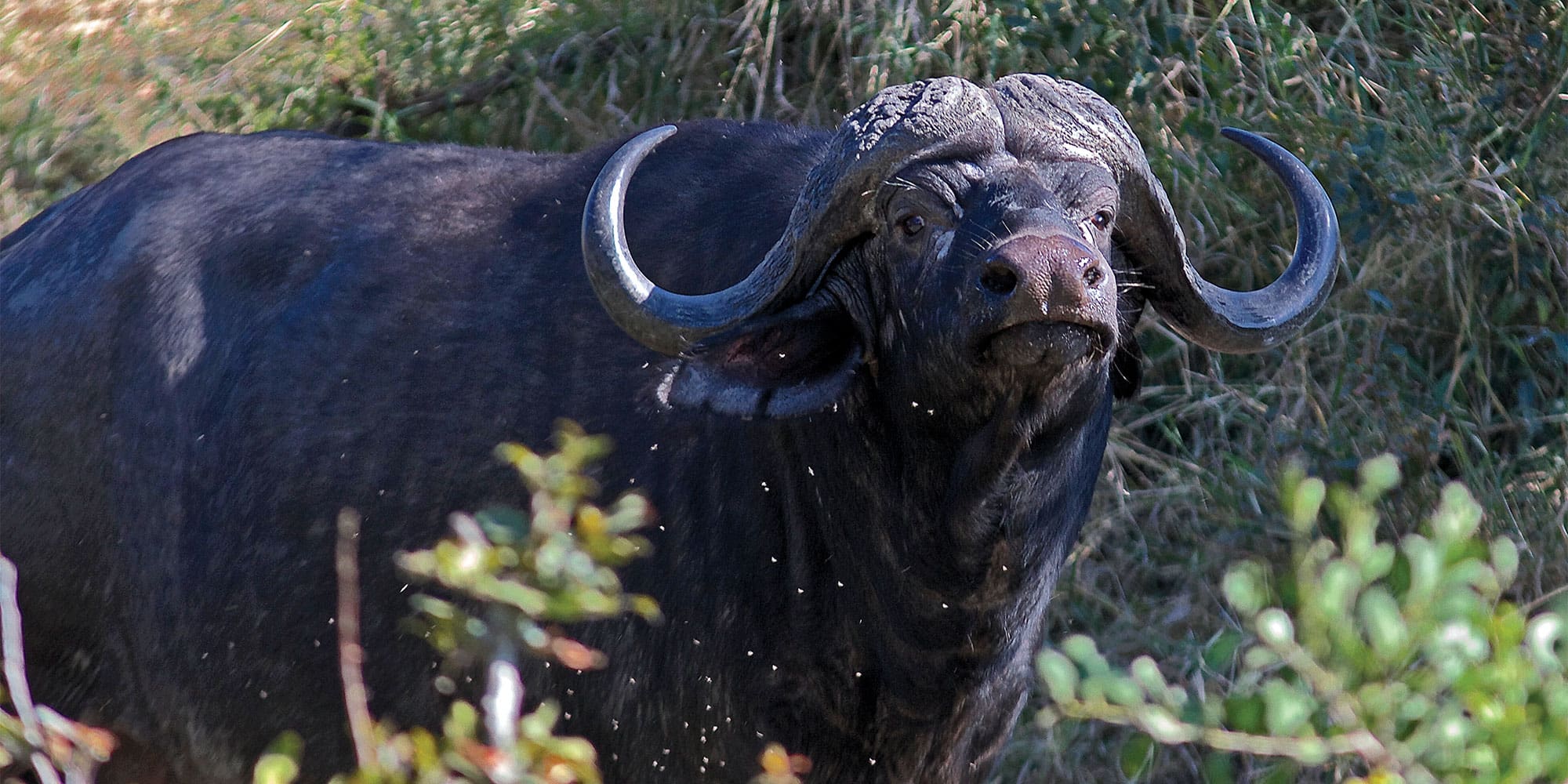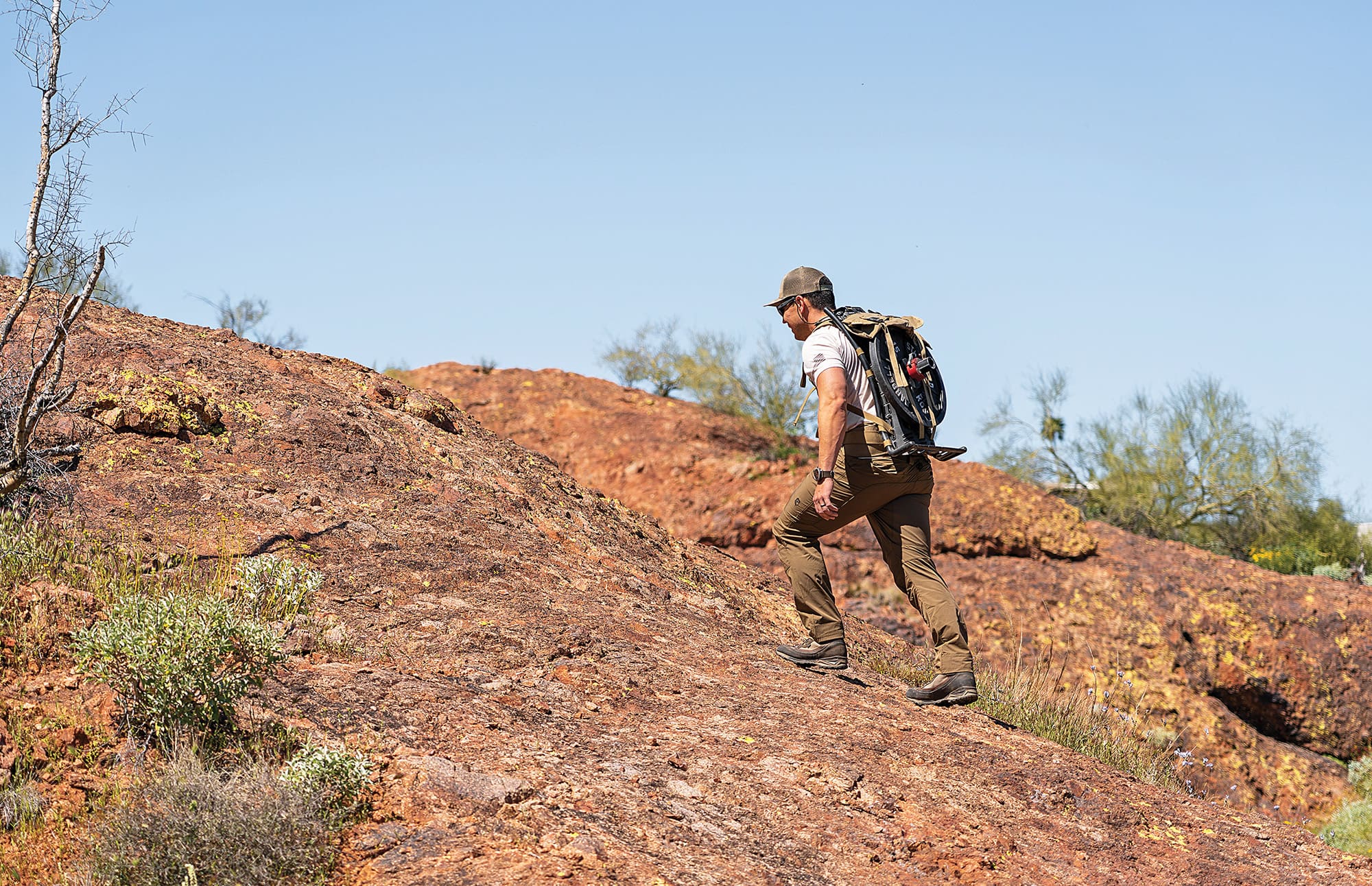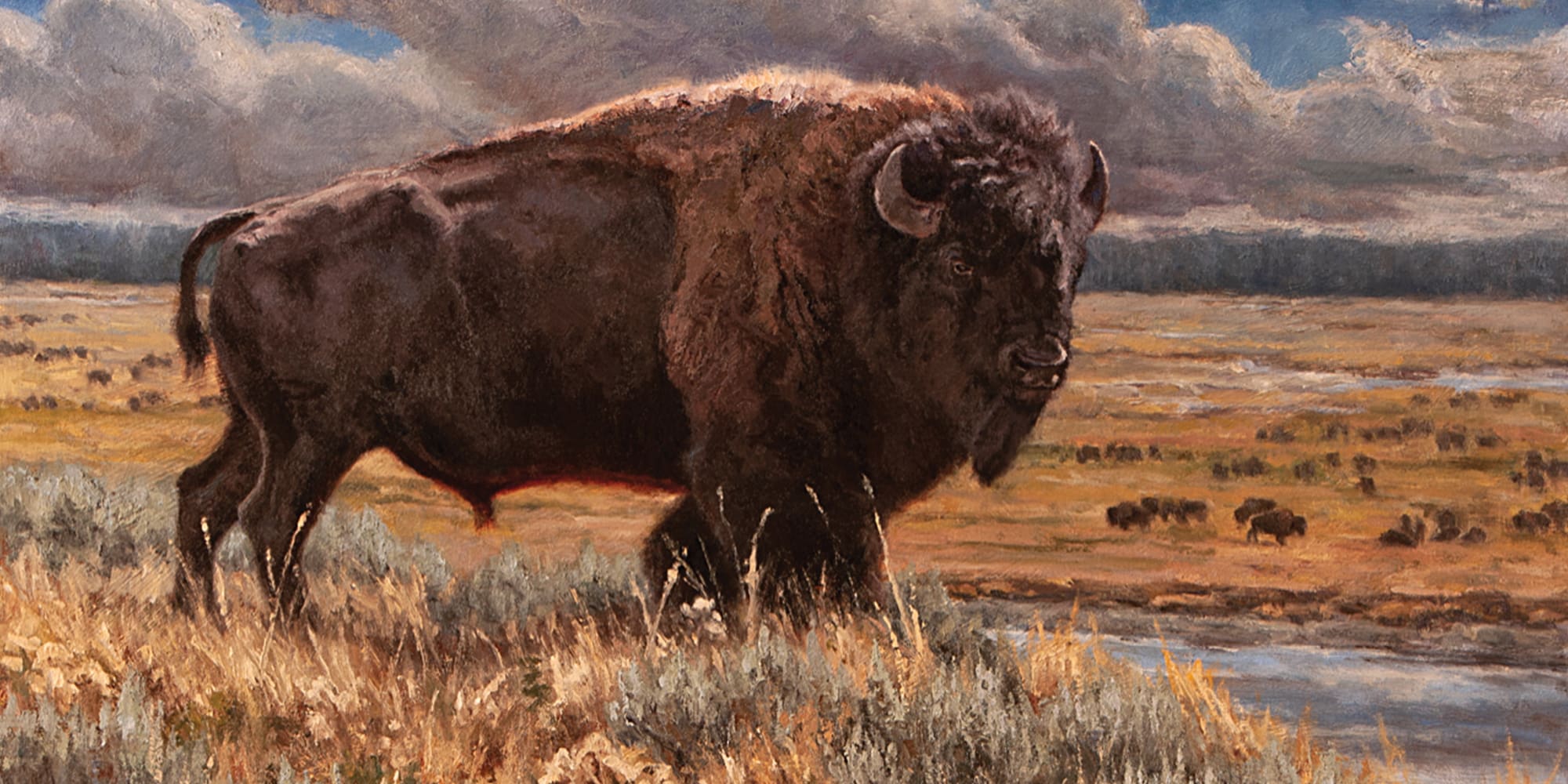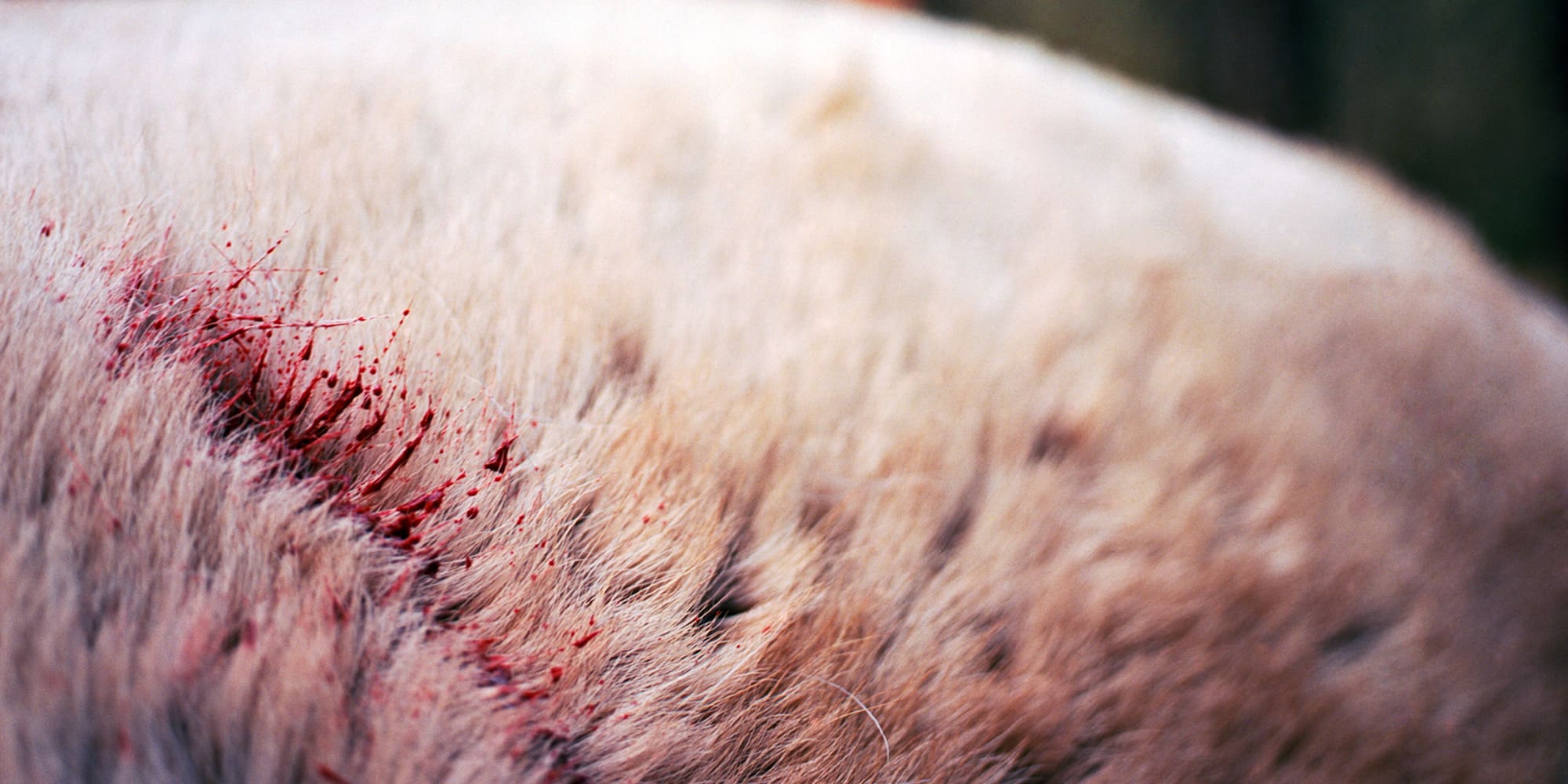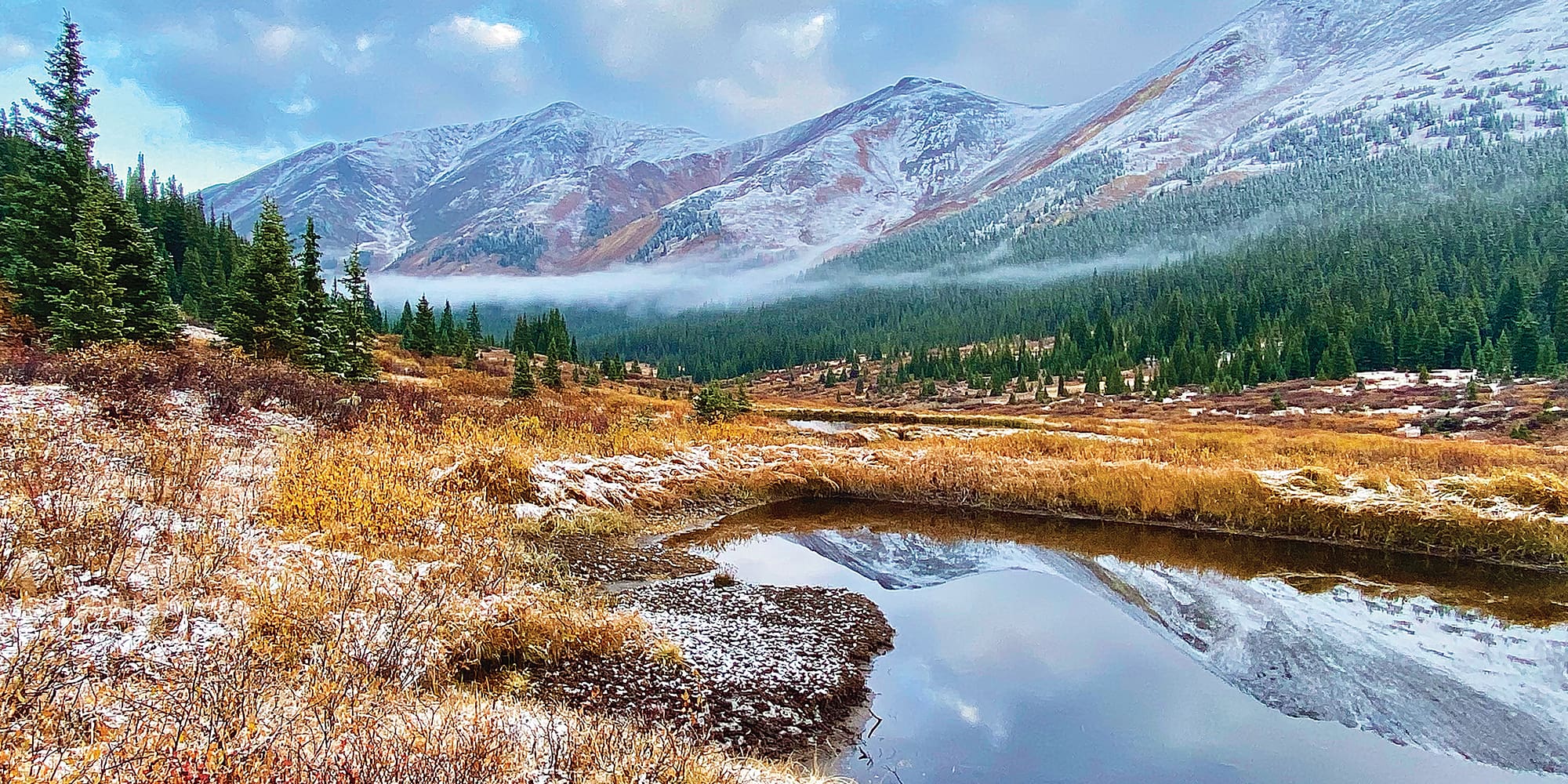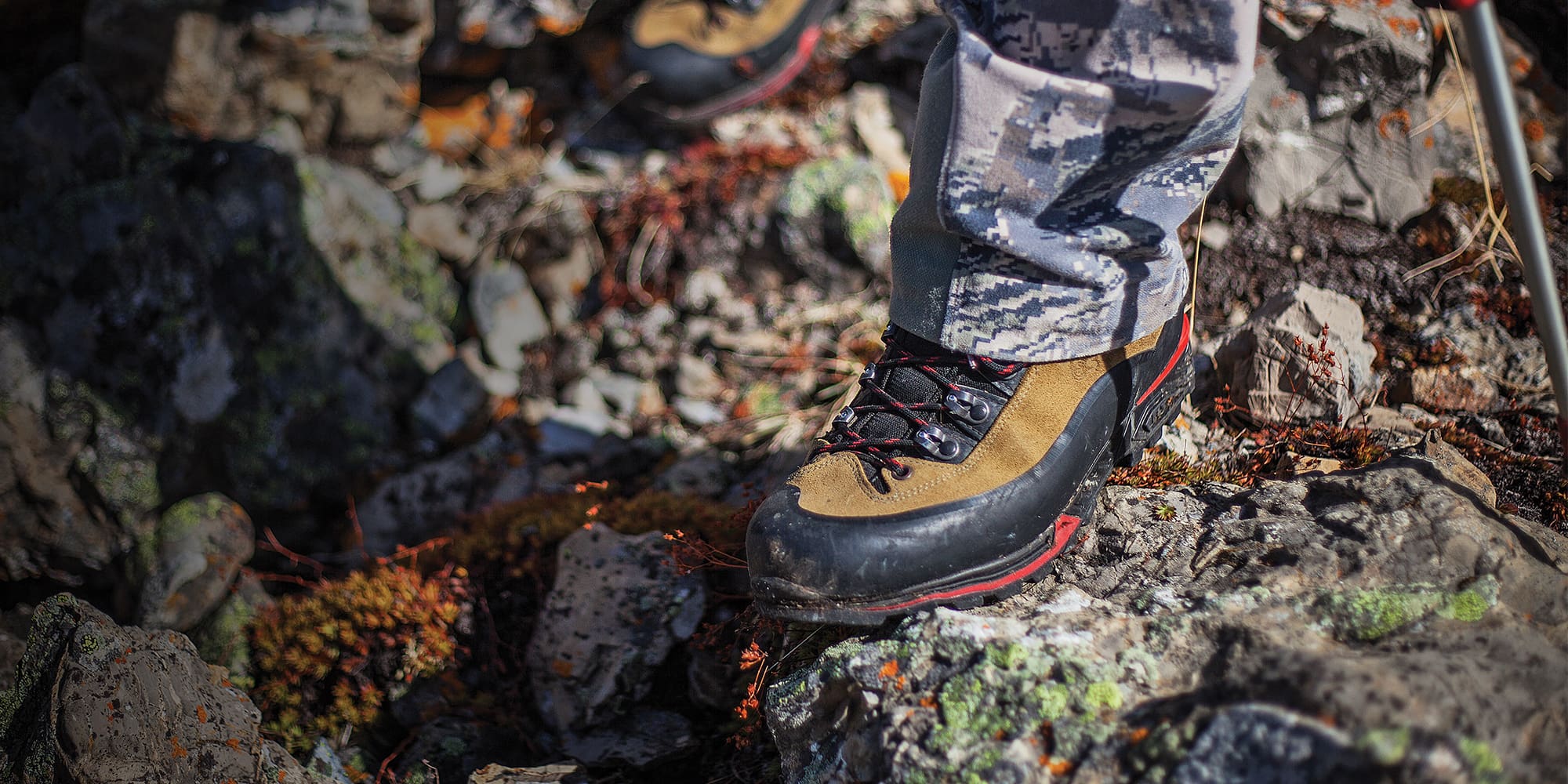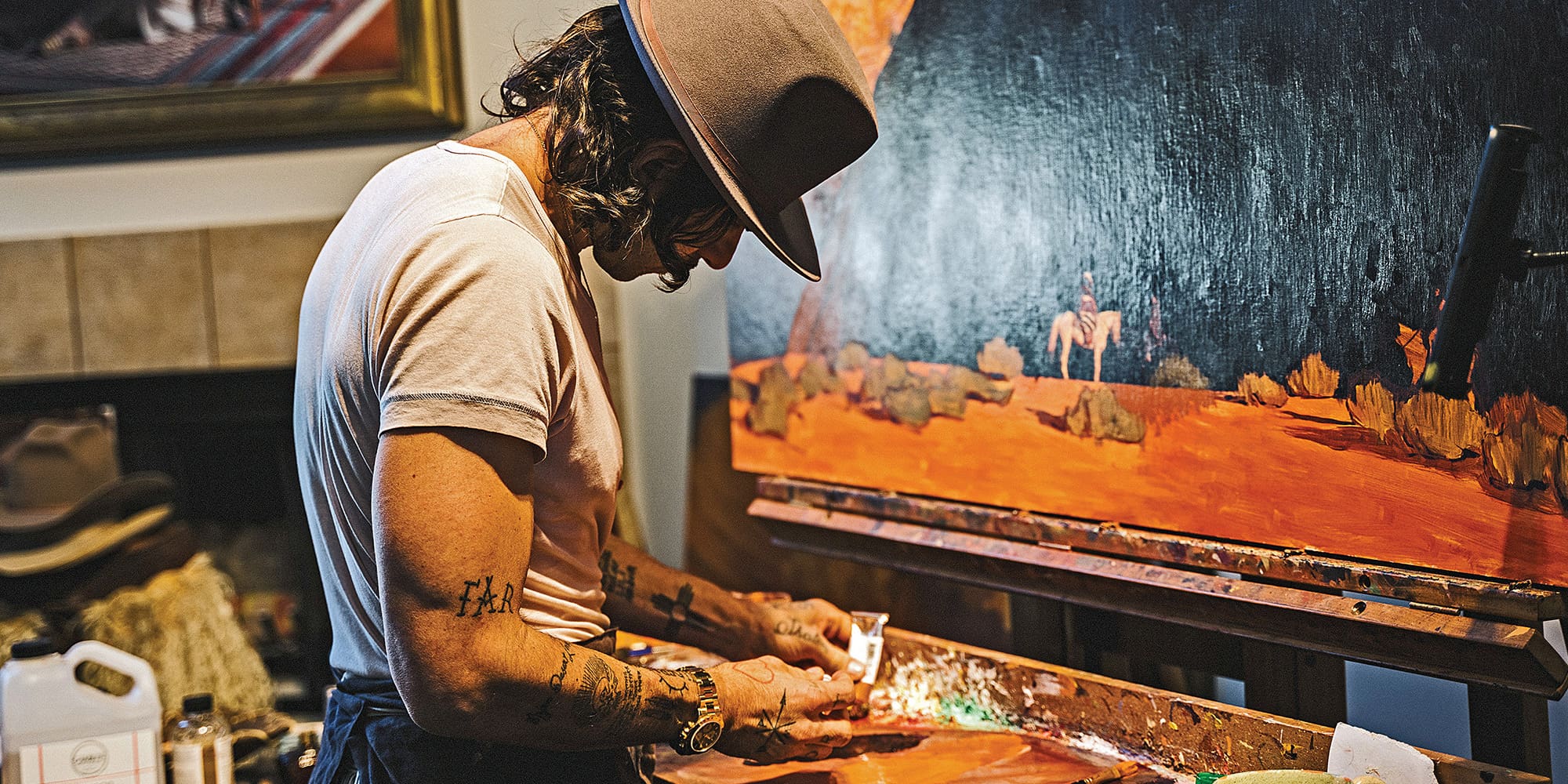
NOTICE: Certain links on this post may earn a commission for Western Hunter Magazine from Amazon or our other affiliate partners when you make a purchase. Thank you for your support.
The Do's and Don'ts of Getting Kids Hunting
Years ago, before I was married and before kids came into my life, I was guiding an older gentleman in his mid-70s on a deer hunt. We got to talking about his family and his grown children and I asked if they liked to hunt. He explained that he was never able to get his kids hunting and fishing, and went on to theorize it was his fault they didn't like it.
I questioned this and he was very honest in his assessment of the things he had done wrong. He felt he had pushed them too hard trying to get them to enjoy it and therefore they didn't enjoy it, because it was forced on them. The old man hunted with me three times for different species over the years and his failure to pass on his passion for the outdoors to his children came up every time.
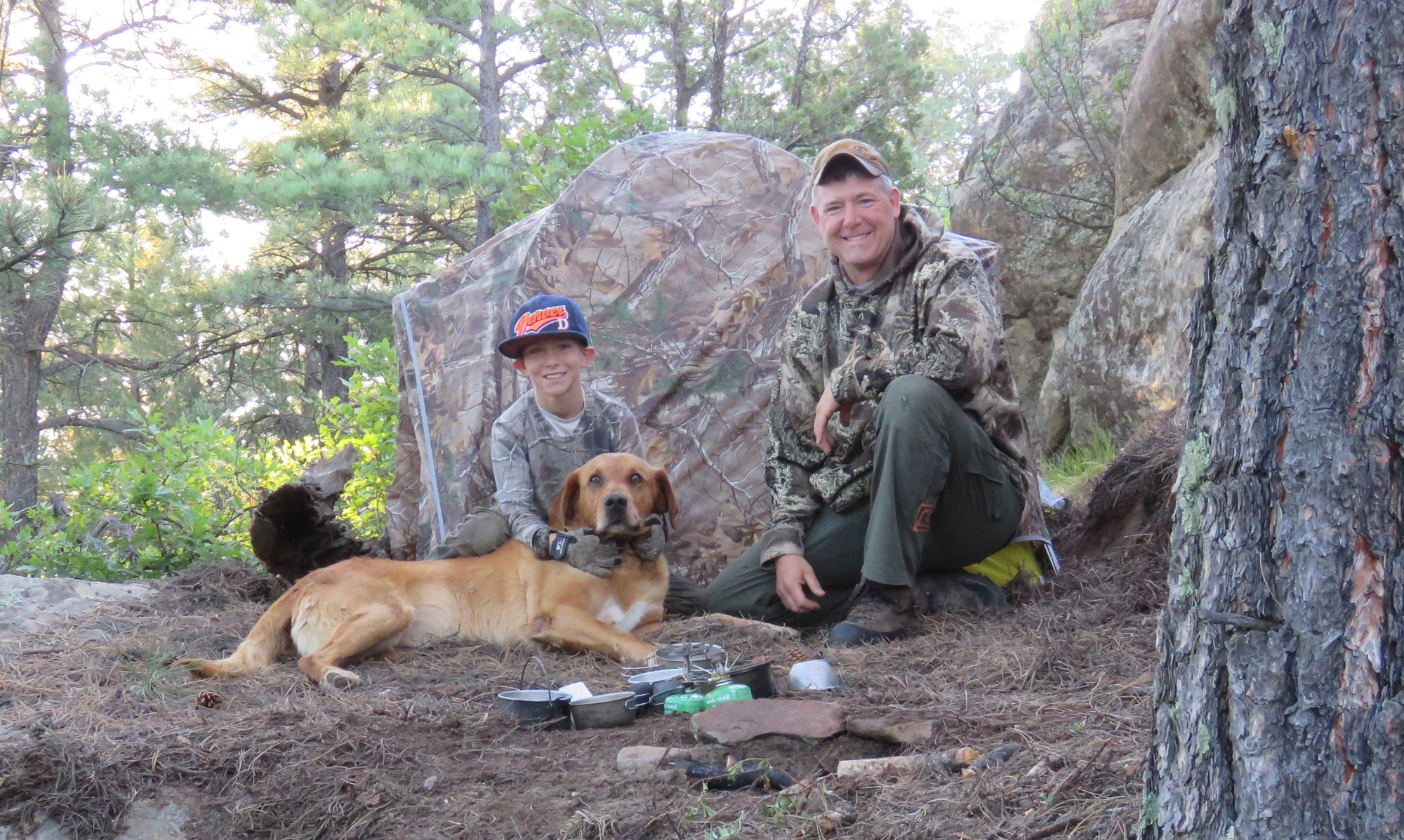
Camping is a great way to get kids outdoors and away from video games.
It was something that stuck with me, even though at the time I couldn't completely relate. We had grown up as kids hunting and fishing with my dad and couldn't imagine someone not enjoying it.
History Repeating
Later in my life, while trying to get my kids hunting and fishing, I realized exactly what the old man had done. I found myself making the same mistakes he had explained to me years before.
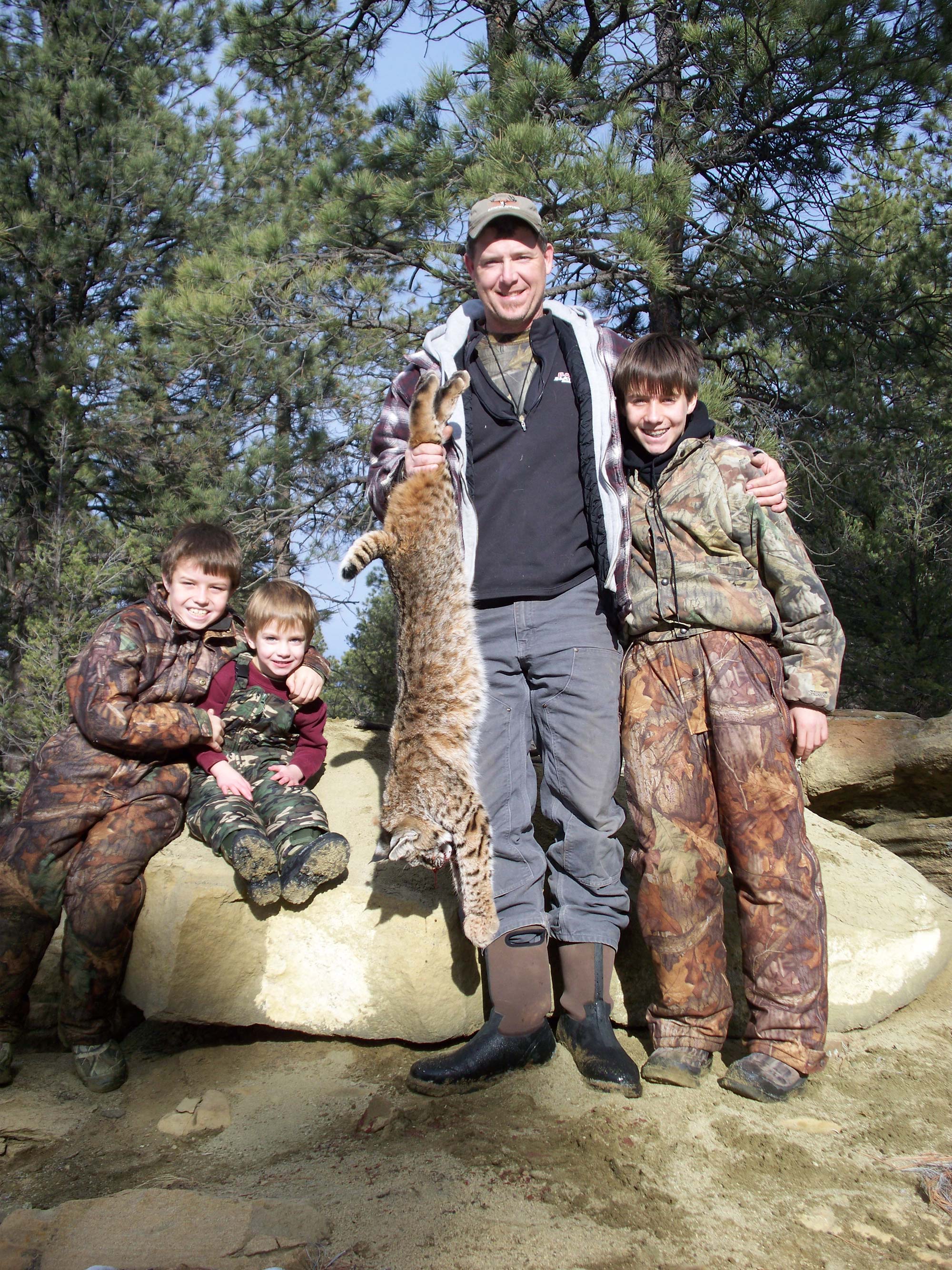
Whether hunting or trapping, when the boys were young and the weather was nice, Fred always tried to keep them involved.
Wanting desperately to get someone you love to enjoy something as much as you do is exactly where most people make their mistake, including me. That’s where I ran into my issues when trying to get our kids hunting. I was convinced that if they could just see the things I have seen, could hear the things I have heard, and feel the things I have felt, there is no way they couldn't become passionate outdoorsmen.
So what if they may have to hike three miles in the dark up a ridge at 9,000 feet to watch the sun come up while listening for a bull to bugle, announcing his presence to all within earshot. And who wouldn't want to help me drag duck decoys through the water with sleet pounding their face, all to huddle in the dark waiting for that first duck to come in with cupped wings. Or why would anyone not want to go hiking a few miles across the prairie with a predator call in freezing temperatures to make multiple sets, just hoping for that one coyote to get fooled into running in.
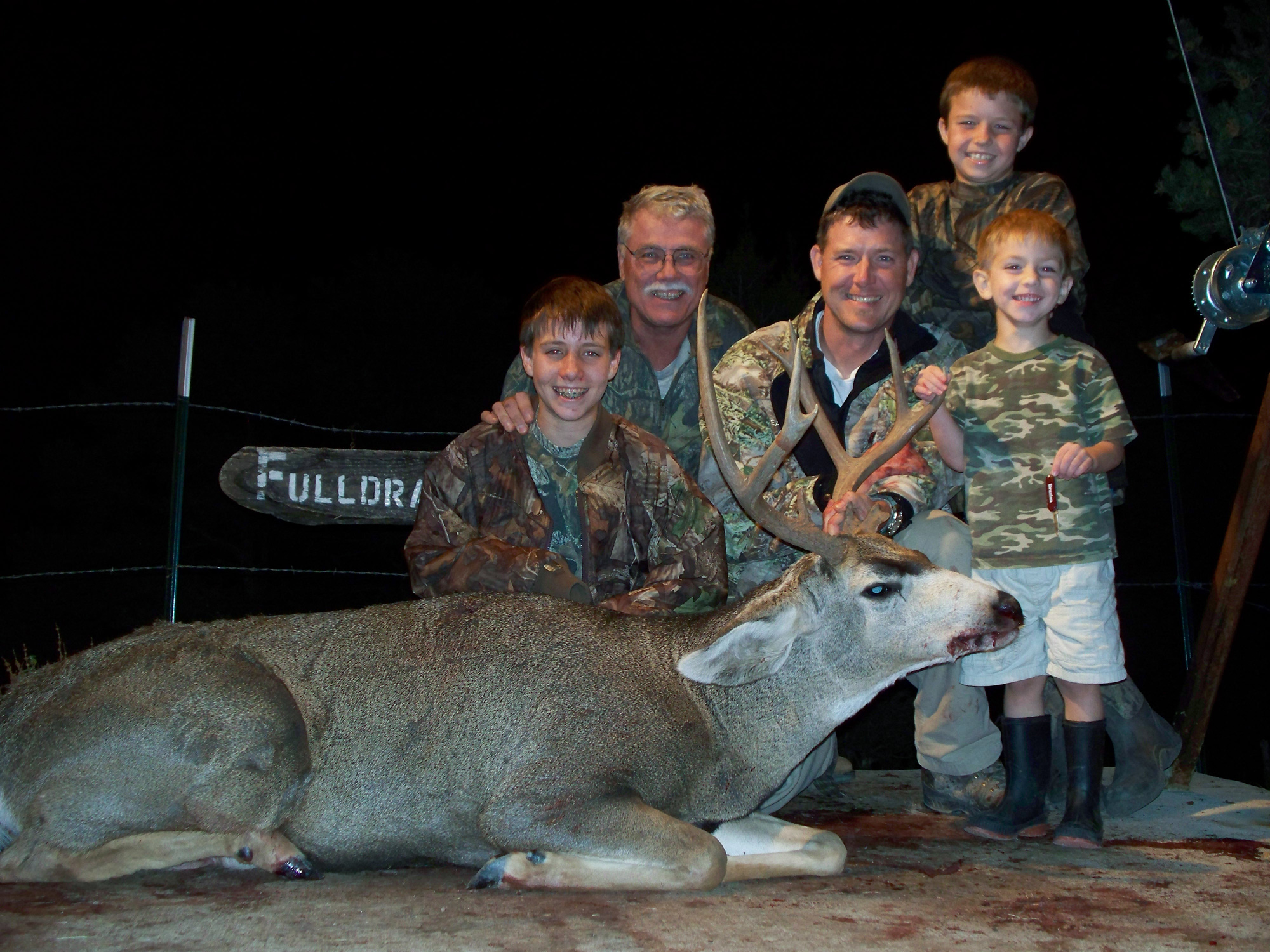
Fred's dad (grandpa) joining in the celebration of one of the boys' first deer harvests.
In my mind, I couldn’t even fathom someone not wanting to get up at 4 a.m. to hike into the woods and set up a turkey decoy in hope that a gobbler would come into range because of my plaintive yelps and stationary decoy.
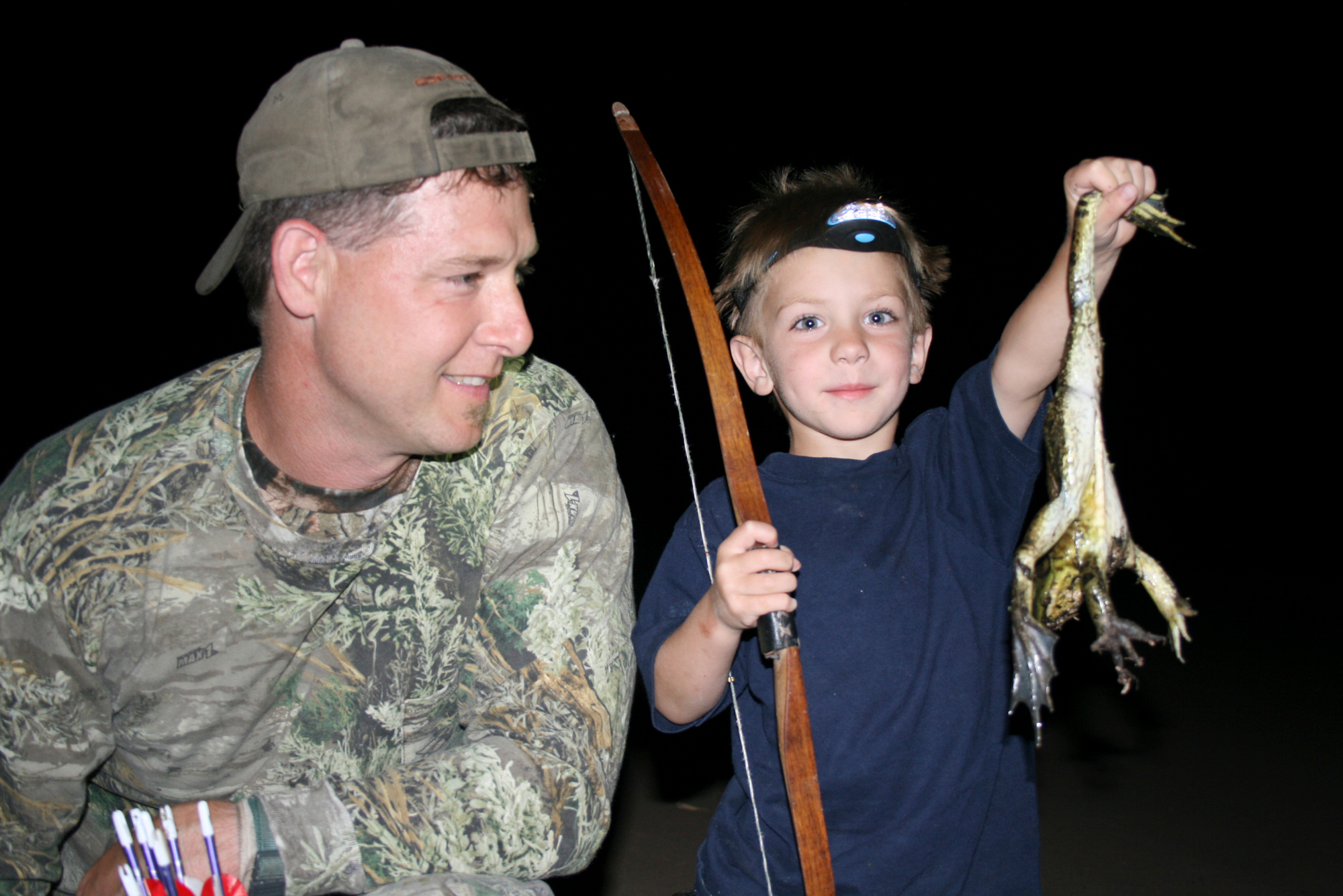
Starting them young and making it fun. Trent and his first frog.
Like most outdoorsmen I know, I had seen all these amazing things, but oftentimes they were over years and after many failed attempts. That’s when the amazing sunrises, sunsets, and sometimes something as simple as a hummingbird made the whole trip a success.
But how could I convince three young boys to break away from video games, TV (except The Western Hunter), and all the other distractions to experience what I wanted so desperately for them to appreciate? I know I often forget all the times I went home empty-handed or without ever even seeing the mammal, bird, or fish I originally went after. Still, I always had a great time.
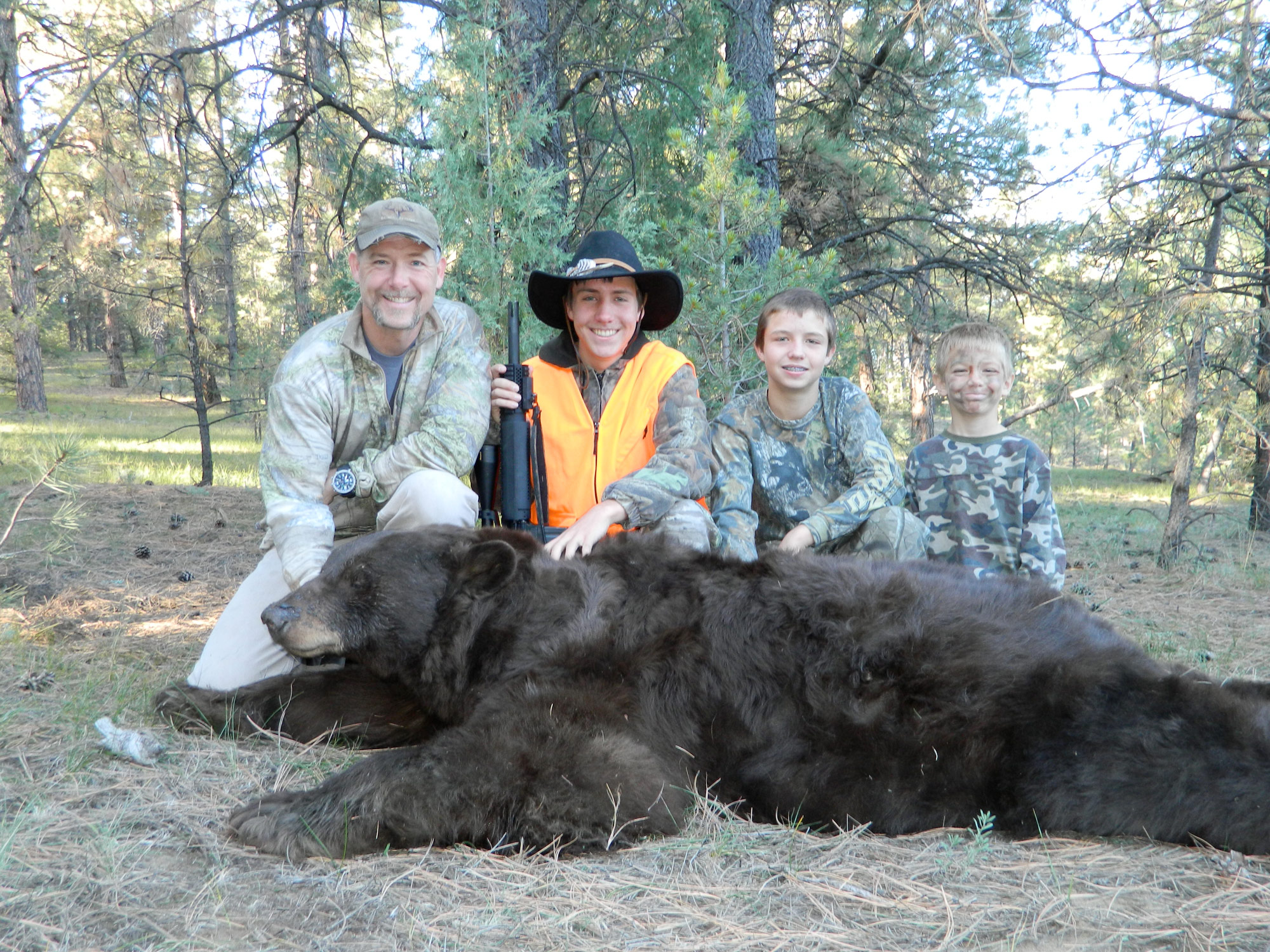
The boys also learned to help after the harvest. Helping to skin and process is all part of it.
Most of us come to realize that the reward is worth all the work and all the failed attempts to sometimes see something as beautiful as a gobbler in full strut with sun shining on iridescent feathers; or a coyote that comes charging into a predator call ready to kill what it thinks is a wounded or dying animal; or to finally catch a glimpse of a bull elk in a backdrop of golden aspen leaves bugling with steam boiling from his nostrils; or to see an antelope on the prairie silhouetted against a setting sun. All these amazing things are what we want to share.
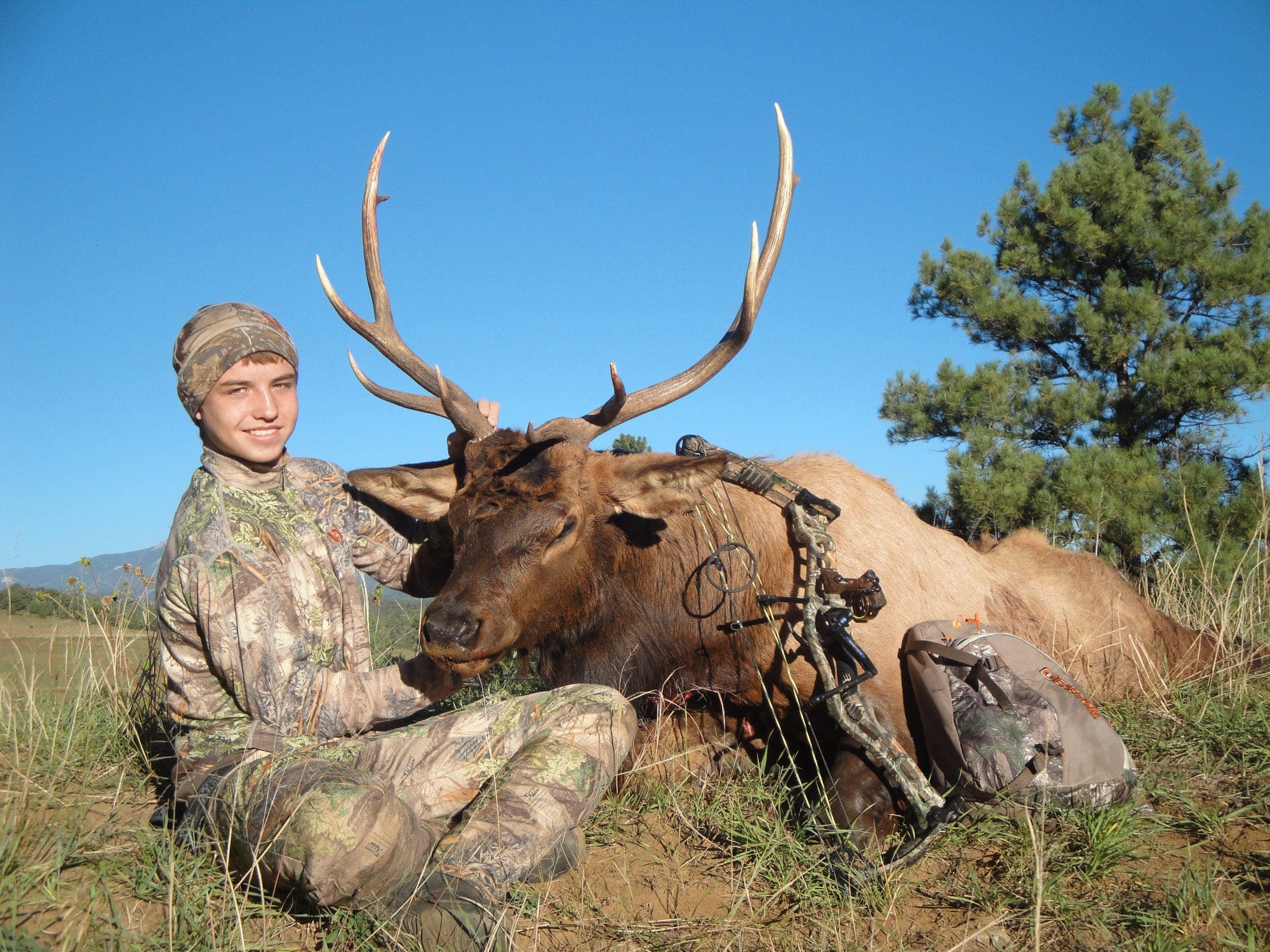
Seth and his first archery elk. The boys learned to be proficient with all types of weapons.
Like most hunters, I know our goal is to hopefully bring something home, but in truth, it doesn’t really matter if we harvest an animal or not. Just being that close and being a participant in nature is what I desperately wanted to share with our boys. I wanted them to share the passion I had. I wanted them to become my hunting buddies and share the experiences my father and I had shared in the outdoors.
A Pattern Interrupted
Fortunately, it was early on when I realized I was guilty of exactly what the old man had told me he had done. When the boys were tired or cold I was the one trying to convince them to stay a little longer and maybe we would see something incredible. When they were hungry I caught myself telling them to hold out a little longer because opening a granola bar may spook something. When they wanted to sit down and rest, I wanted them to push on so we could make the ridge before first light.
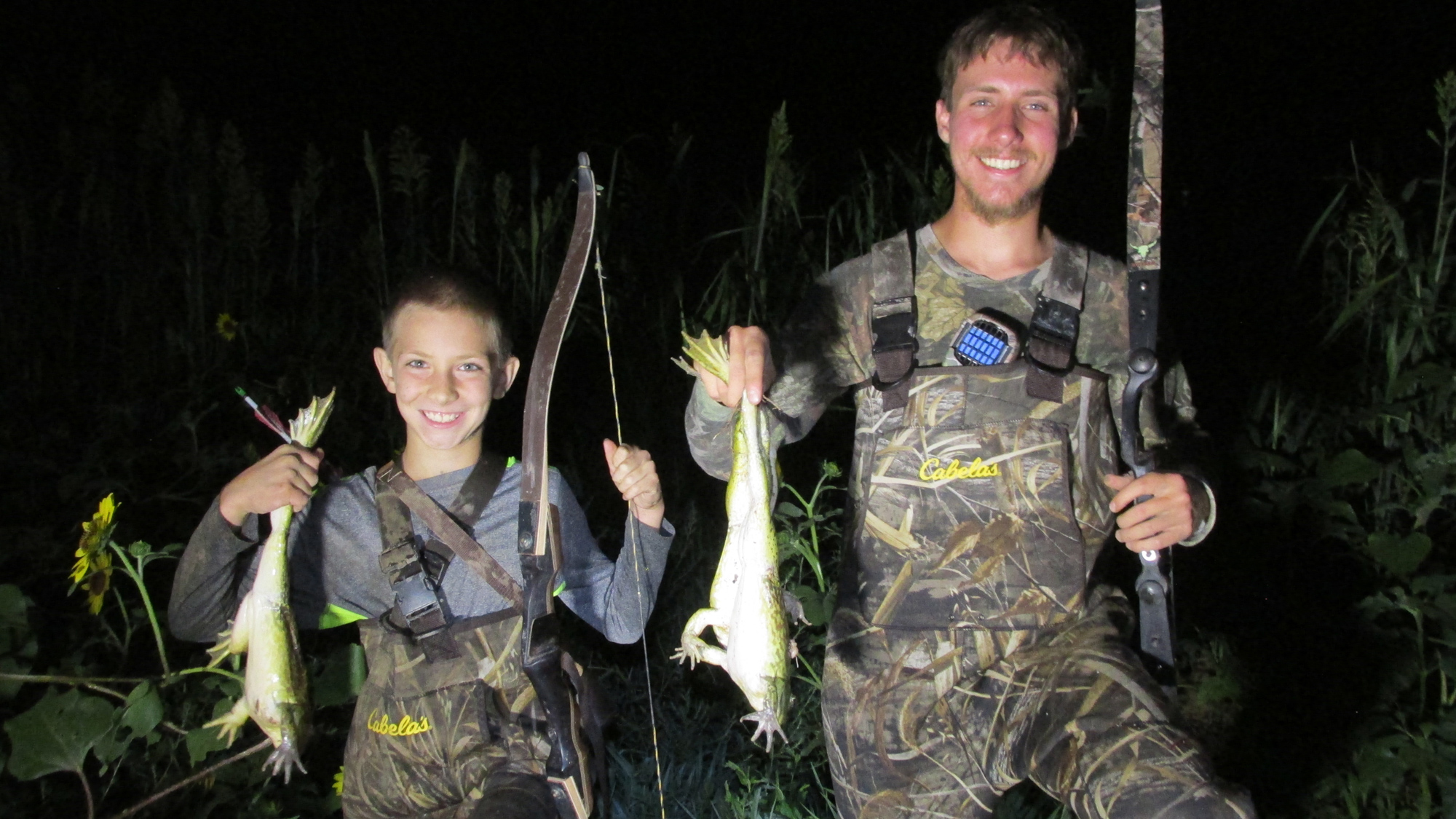
Fred's youngest and oldest having fun shooting frogs on their pond.
In my foolish push to get them to like something, I wasn’t making it very fun. I had to change what I was doing or I risked pushing them away from me and the natural world I wanted them to enjoy.
So, I changed. I pretended to be fine with it if they chose to sleep in, when in truth I was crushed they didn’t want to go with me. If they were bored waiting for a whitetail to show up in a field, we would sword fight with weeds. If they were hungry, we would eat, even if it was the prime time to be hunting. If they were tired of hiking, we would sit down and take a break or a nap, even if it meant missing the hunt altogether.
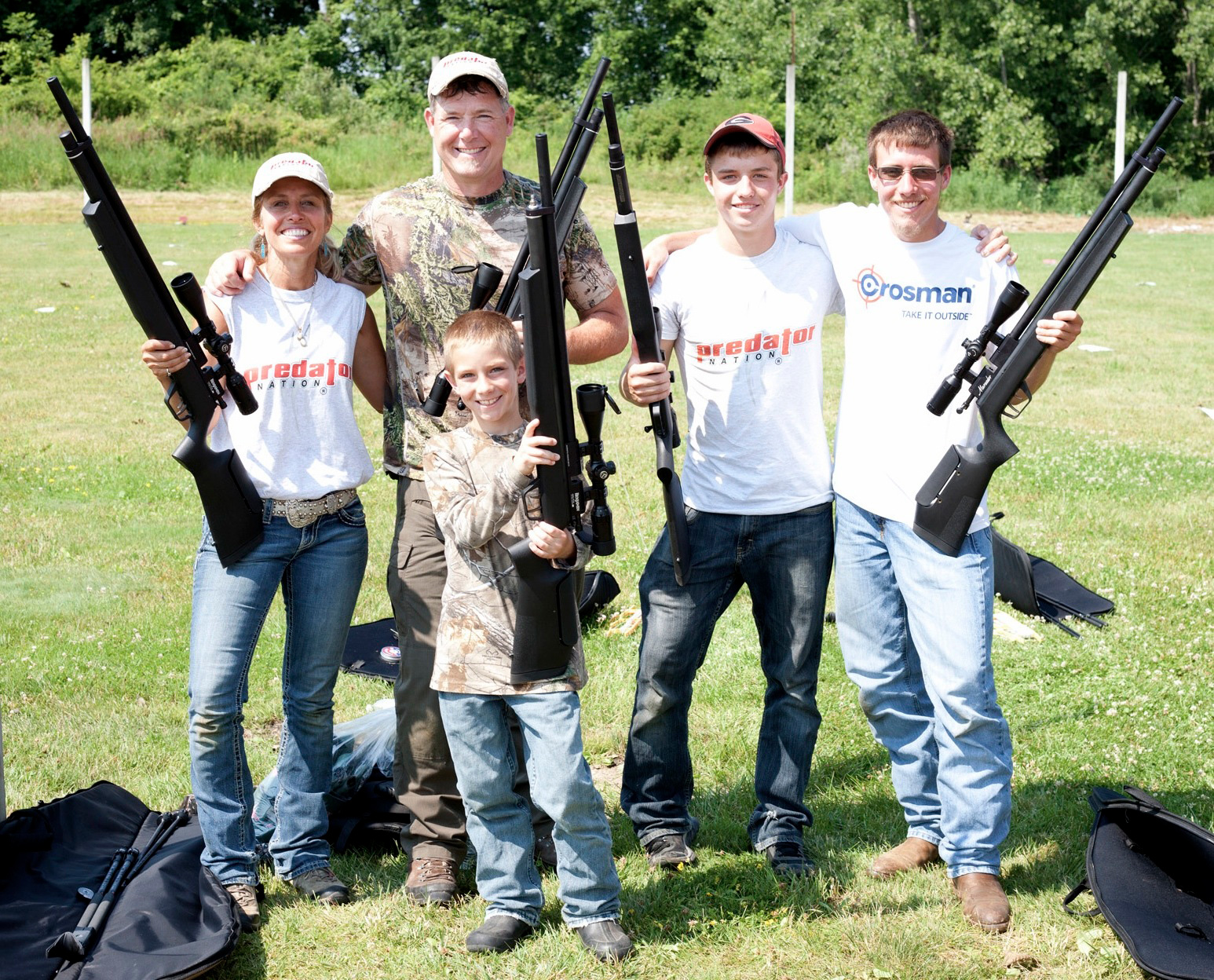
Learning different weapons and making practice fun keeps it interesting.
I tried and still try to make everything fun. While cleaning fish, I would try and show them all the cool anatomy lessons my dad used to share with me. And like my dad, if making things fun meant chasing each other with fish guts, then so be it.
I’m not close to being a perfect father, but when I take the kids, I do continually try not to be as regimented as I often am when hunting by myself. I’m slowly realizing that quality family time outdoors is way more important than getting the kids a shot at an animal.
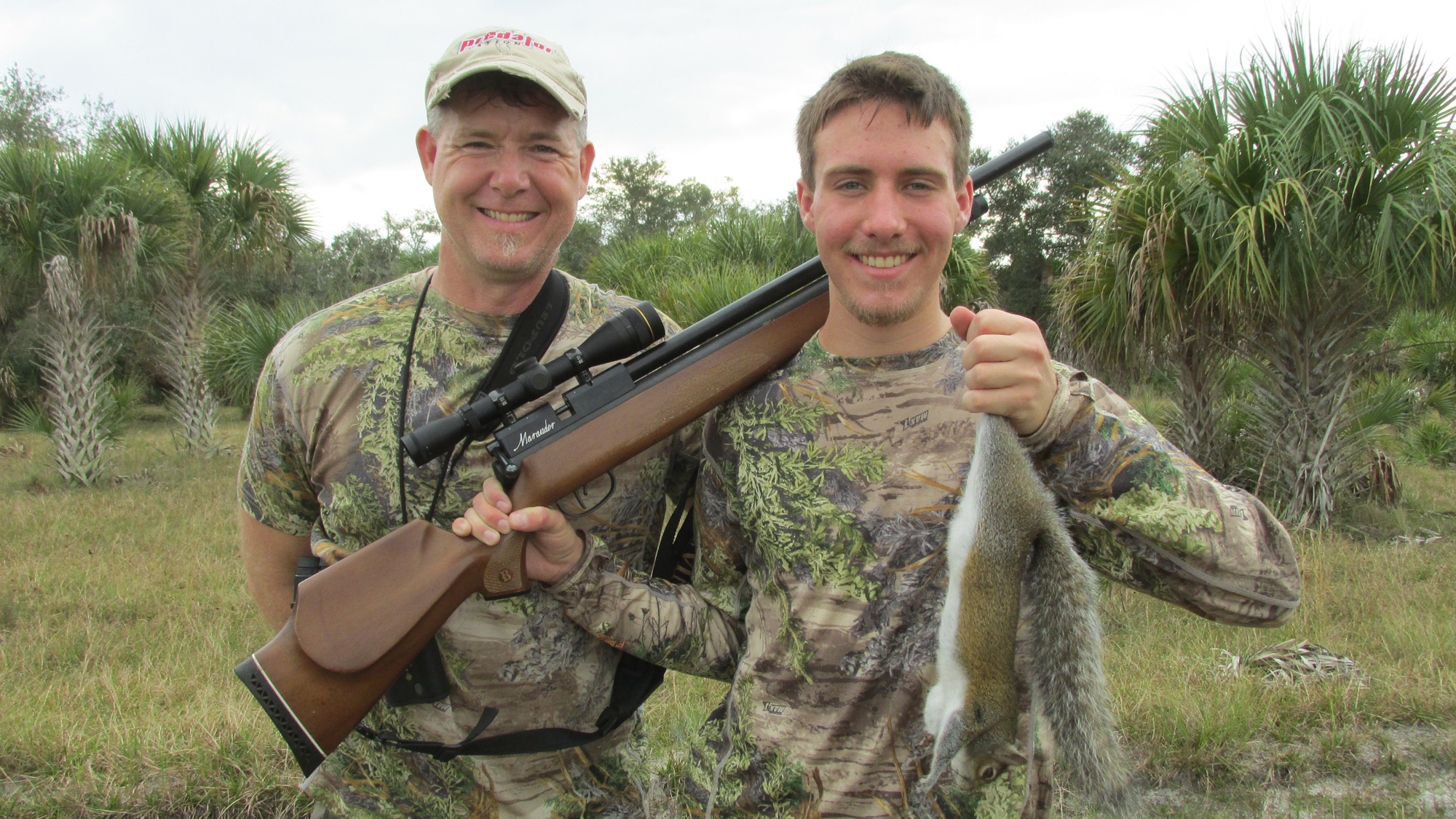
Small game and air rifles are a great way to get kids started. Jeb still enjoys it today.
Lessons & Rules
The things I feel my wife and I have done right were to first and foremost try not to put any pressure on them to harvest an animal. However, if they did, we made a big deal about thanking them for providing the meal we were eating. It didn’t matter if it was frog legs or a squirrel, when we would sit down to eat, we always thanked whoever provided the meal.
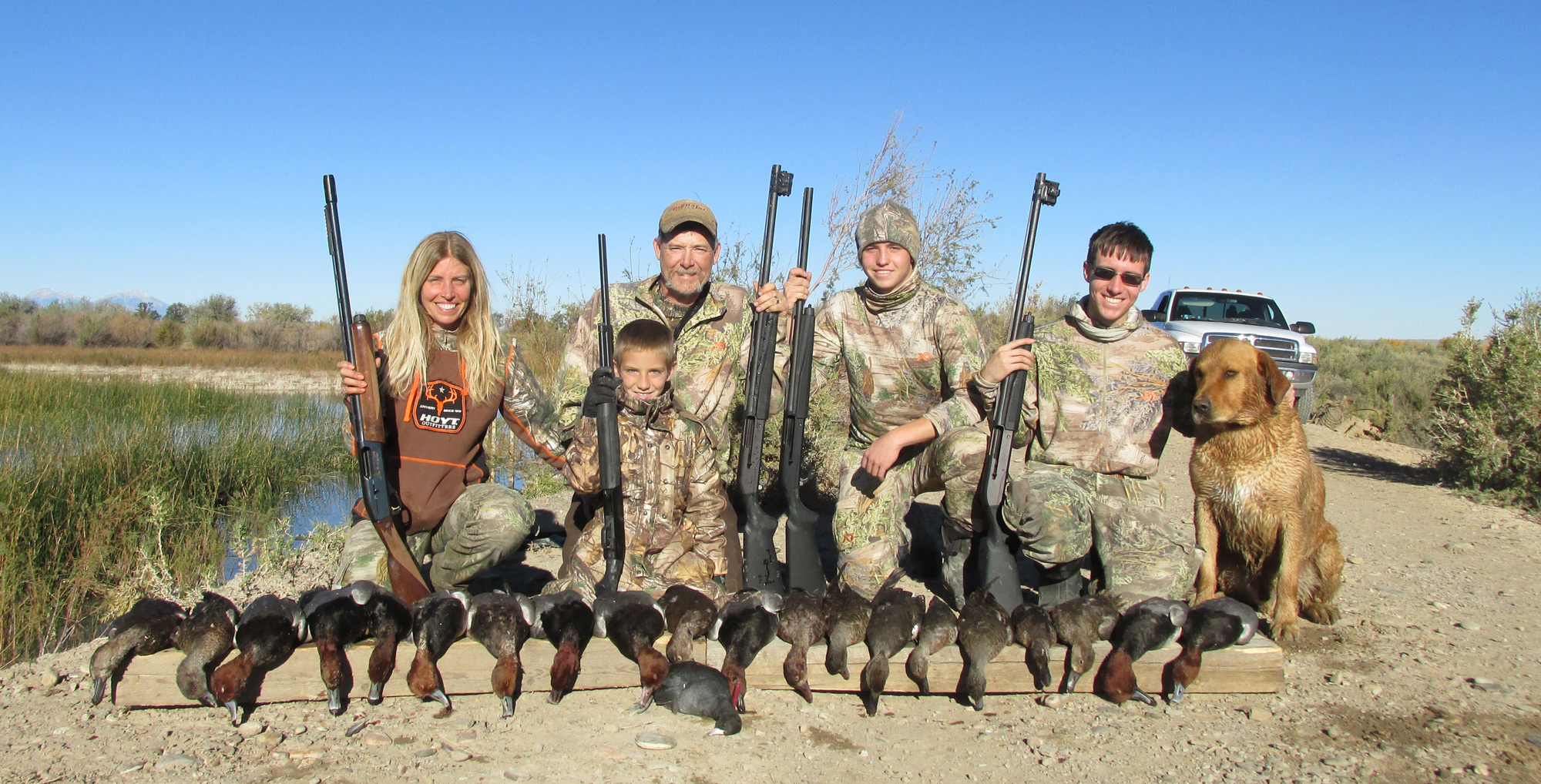
Different types of hunting can keep it interesting and allow kids to choose what they enjoy most.
We also cut the kids off of technology three days a week at an early age. The rule in our house is no TV or video games Tuesday, Thursday, and Sunday. That was huge and kept them more engaged in other outdoor activities, whether it was hiking, shooting, riding a horse, or reading.

Make sure it's the size of the experience and not the size of the harvest that counts.
We have tried to teach them respect for all animals big or small and to respect the animals they harvest by utilizing the skin, the meat, or both. We were also sticklers on teaching them to use and become proficient with multiple weapons, so they could decide what they enjoyed the most. We encouraged them to only take shots they were confident they could make out of respect for the animal. We got them engaged in learning tracks, as well as how to skin, quarter, debone, and cook their harvests.
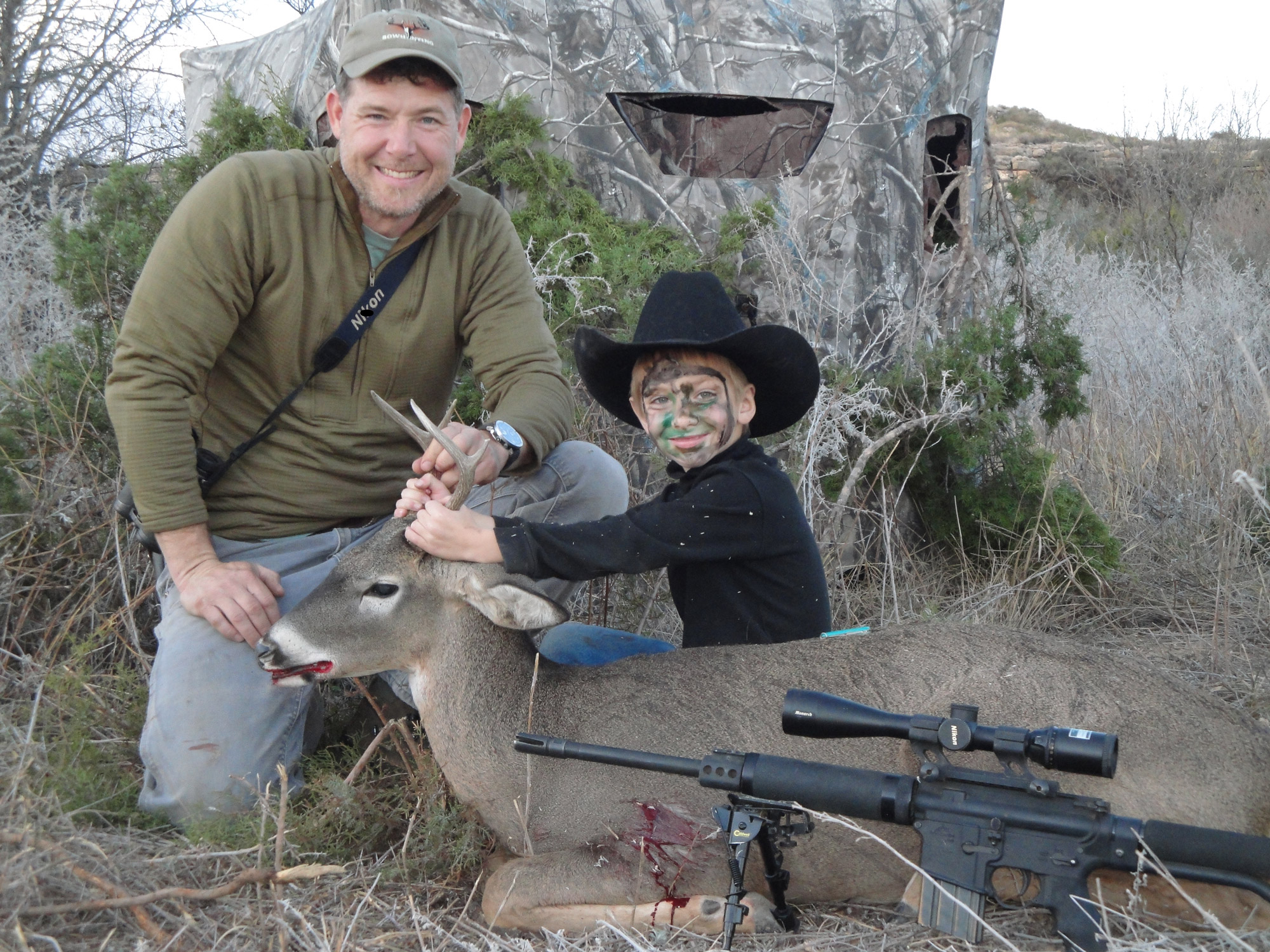
Fred's youngest, Trent, and his first deer.
Generations of Life Memories
I’m proud to share with you that all three boys are active outdoorsmen. Our family vacations usually revolve around some type of outdoor activity and we are building life memories.
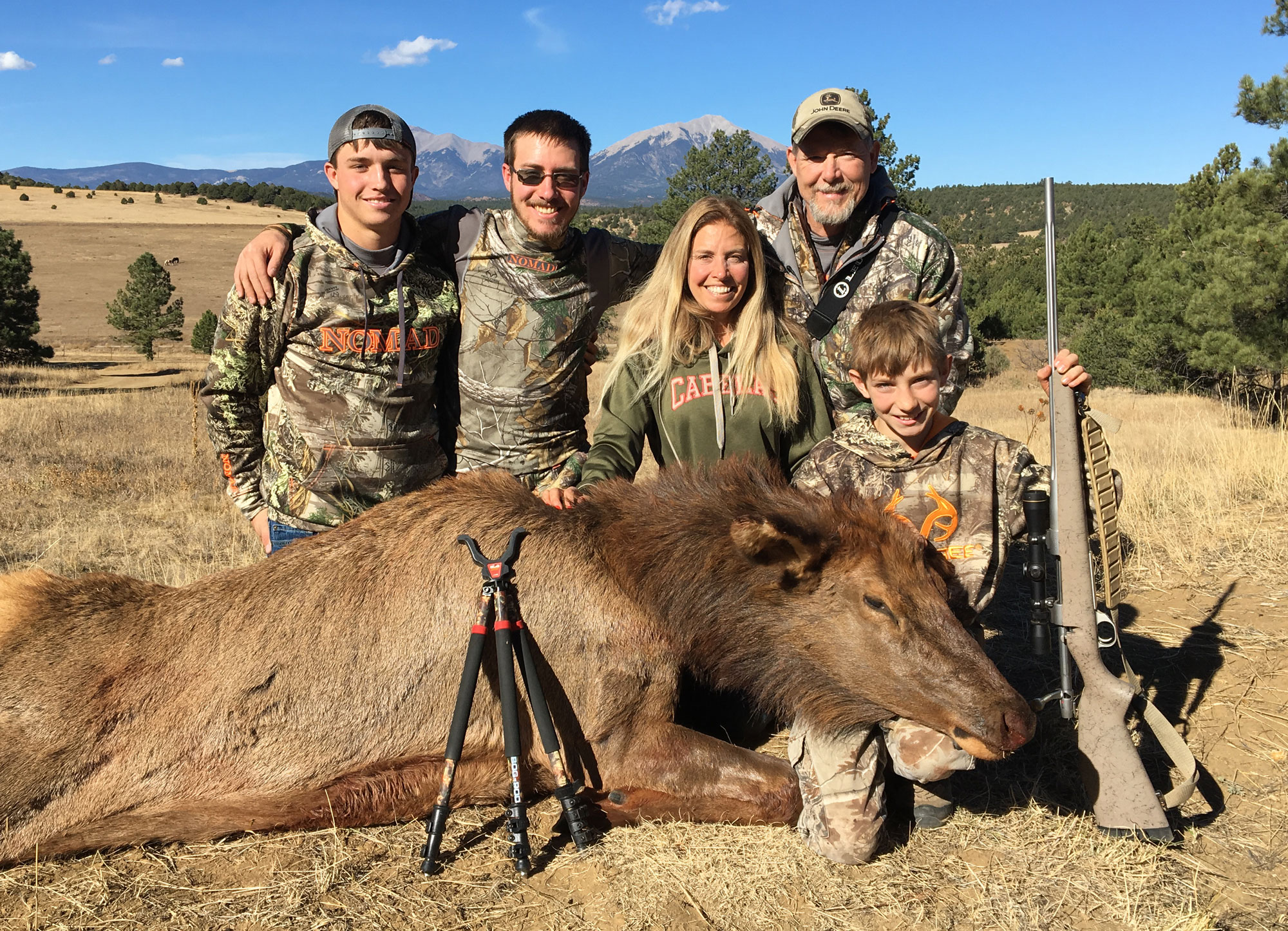
As they get older, the game gets bigger. Everyone celebrated Trent's first elk.
Similarly, my father and I continue to share some of our best times together in the field. We are great friends and I feel a lot of the reason we have had and still have the relationship we do is because of a shared passion for the outdoors. I’m now sharing special times afield with my boys and my father, who at 72, is still an avid hunter. We’ve also included my 89-year-old mother-in-law, who is still hunting.
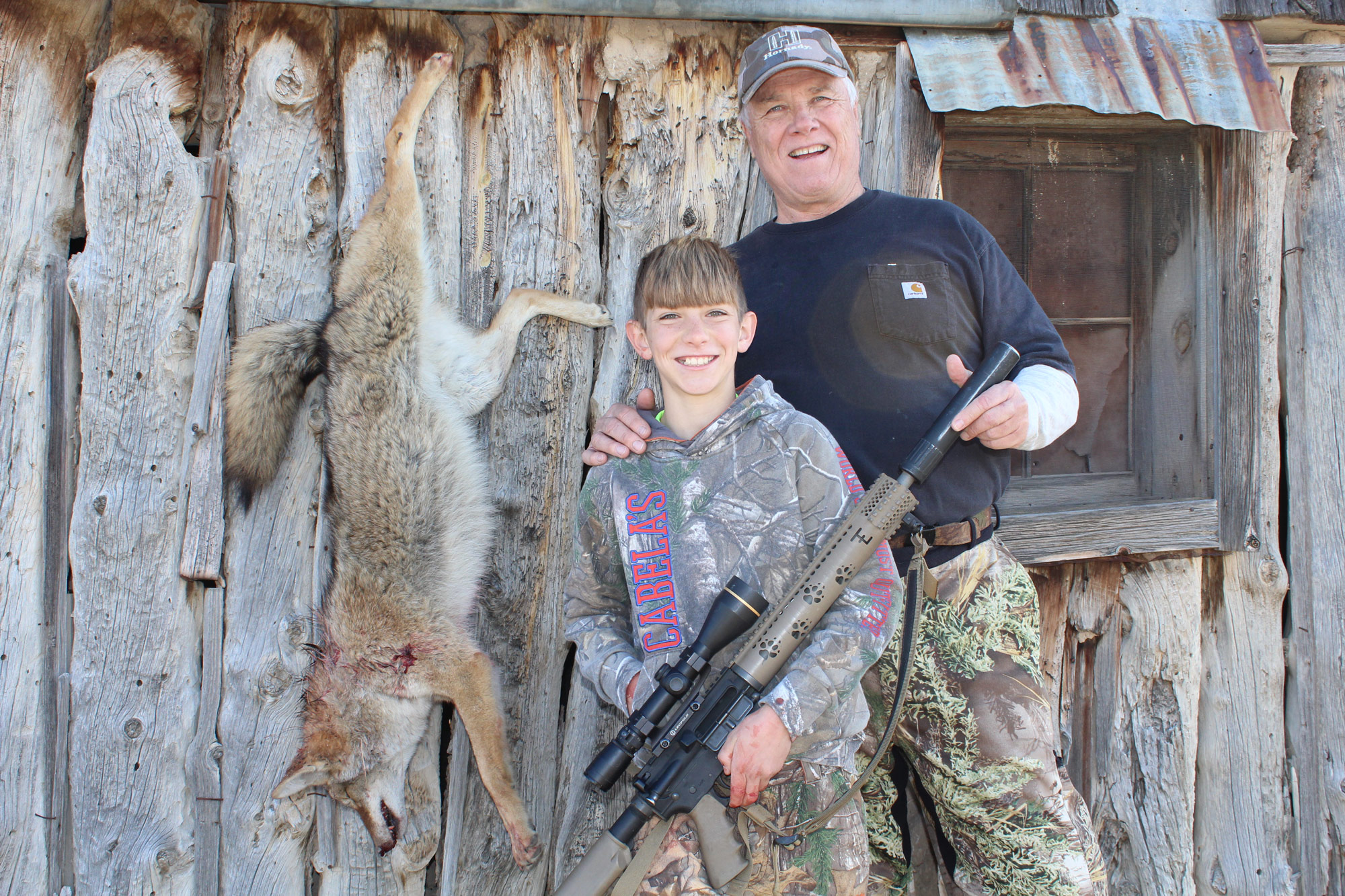
Trent and Grandpa after a successful coyote hunt.
My hope is that more parents can avoid the mistakes I’ve made and remember that in my humble opinion, kids will naturally gravitate to the outdoors as well as hunting and fishing if they are introduced to it correctly and without too much pressure. It’s the adults that need to avoid messing it up. Getting kids hunting is the future.


